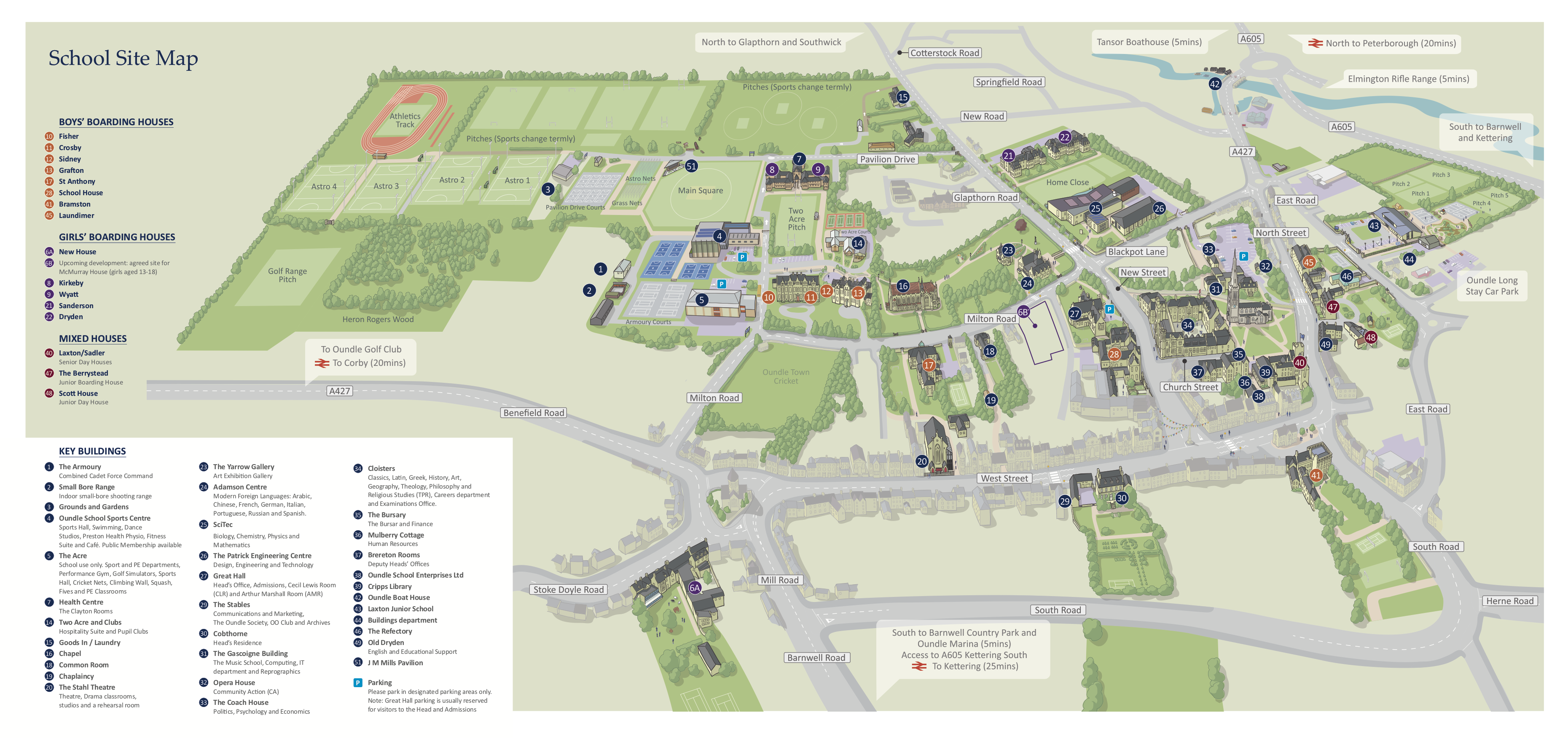Welcome to...
Oundle School



A little background...
Oundle School was the first English school we visited. We were staying at a small town called Kettering to visit this school located in Oundle about 90 miles north of London. Then, on the 5th of May morning, a typical english cab drove us through the picturesque english countryside to discover this new school.
Once we arrived in the city, the driver had troubles finding the school entrance and we could not help him in any way with the information we had. So he stopped the car on the side of the road to ask a passing lady for directions. He asked her politely:
– “Excuse me madam, can you tell me where Oundle School is?”
The lady laughed and replied:
– “Which part?”
In fact, the school is scattered over dozens of buildings, dating from the 17th to the 21st centuries, in different parts of the old town. Pupils cross different streets to get from one course to another, and some teachers are even on bicycles. This school has a unique structure, as we could almost say that the town is, to a large extent, its campus.
We eventually found our way, but this anecdote amused us a lot and is representative of the very particular organisation of Oundle School.
- Thursday 5 May 2022
- Travel day 10
- 5th school visited

Ready to discover Oundle school ?
Oundle School is a British independent private school founded in 1556 in the Northamptonshire in England. Therefore, the school has a long history and a strong reputation for high-quality education. It is known to have excellent academic results and to have modern facilities. Like in most of English schools, uniform is compulsory.
The school welcomes students aged from 11 to 18 years old. It is a co-educational school offering both boarding and day school options. The school provides a wide range of academic subjects such as Sciences, Arts, Languages… It also promotes artistic, sportive and humanitarian extra-curricular activities which are highly considered by the pedagogical team, especially for boarders.
The school values academic excellence while encouraging students to get involved in various aspects of school life to promote holistic learning.
If you need more background information, take a look at our page about the English education system!
A school with impressive facilities
We had the chance to have a one-hour school tour with a guide. But even within this time frame, we did not have time to see everything since the campus is so vast. However, we already saw plenty of interesting buildings and classrooms that we are going to present to you.
As you can see on the map below, the school is composed of dozens of buildings dedicated to different departments and activities:
We are going to reproduce for yo our visit of the school. It is a fun way to present you its specificities.
Get in board and let’s go !
- The Cloisters
The Cloisters are the heart of the school, as one of the school’s oldest and largest buildings. It houses three departments: Humanities & Social sciences, Career Support and Arts. With its interior courtyard and numerous courses taught there, it is a lively building where students are always flocking.
We were quite impressed by the beauty of this historic building and by the pupils work of art.
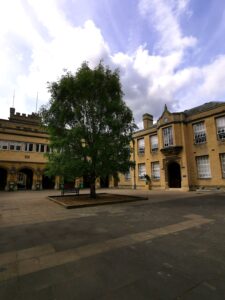
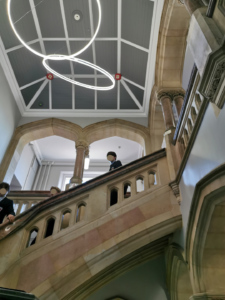
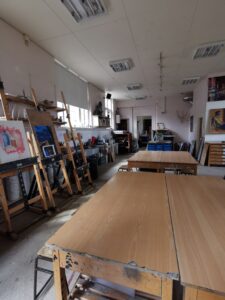
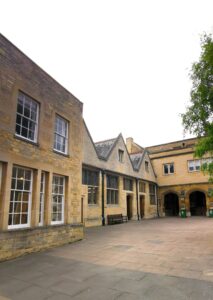
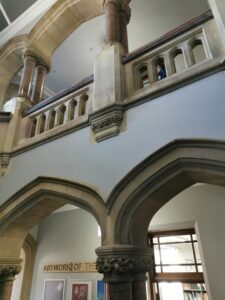
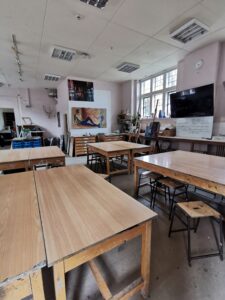
- The Cripps Library
Pupils at Oundle school have access to a thoroughly modern library in a charming old building overlooking an old cemetery and St Peter’s Church. There is a warm atmosphere within this space, filled with books, exhibitions in glass cabinets and with one rare books room. It is a quiet space that makes you want to work!
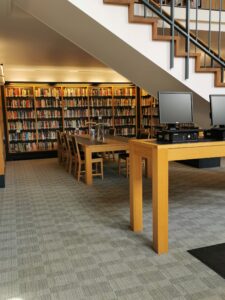
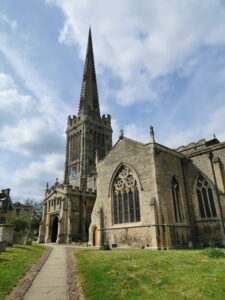
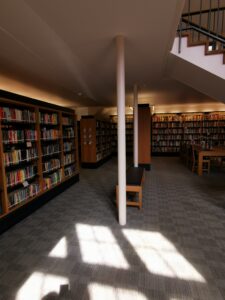
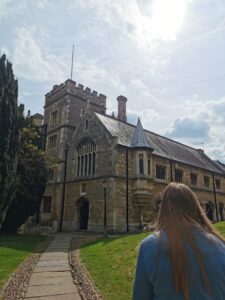
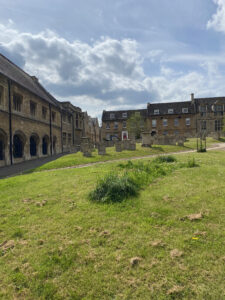
- The Adamson centre
The Adamson centre is dedicated to the modern foreign languages department. At Oundle school, a lot of students study two or more foreign languages is the large array of languages available : Russian, French, Spanish, German, Italian, Arabic, Portuguese, Chinese… As you can see on the pictures below, each classroom is decorated according to the language taught. It immerses the pupils in the culture of a particular country and fuels their desire to discover other cultures. They also have 2 Sony languages laboratories to work and learn by listening.
We had the chance to assist to a french lesson for the year 7 (11 years old). The 13 students present had started studying French this year. The lesson was on the theme of food and consisted of a variety of exercises. The teacher asked them to conjugate the verb ‘to eat’, then went on to do a translation exercise by randomly interrogating some of the students and then asking the whole class to repeat the right answer. She then gave them a fun way to work on their vocabulary with an exercise of words search to be translated from English into French, then searched for in a grid on their computers/tablets. During this exercise, she introduced them to a typically French sweet: the carambar. She spoke only French throughout the lesson, which is impressive in a beginners’ course.
We were able to visit this school thanks to Sara Davinson, director of the School-Centred Initial Teacher Training (SCITT) and award-winning languages teacher.
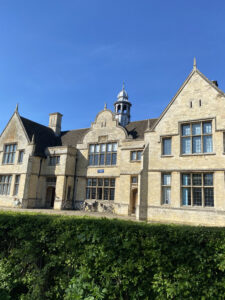
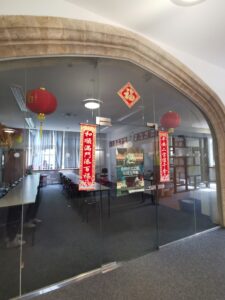
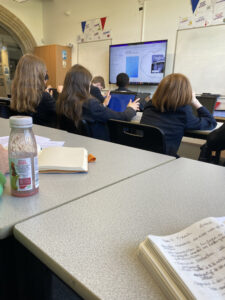
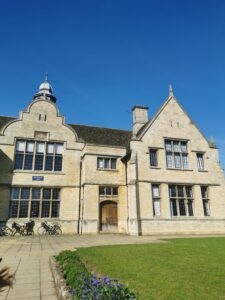
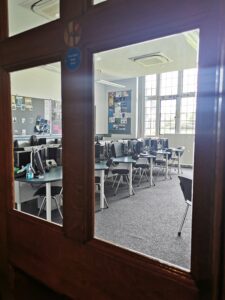
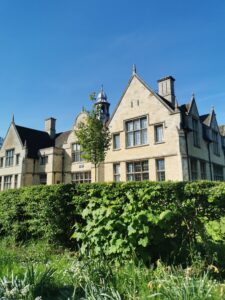
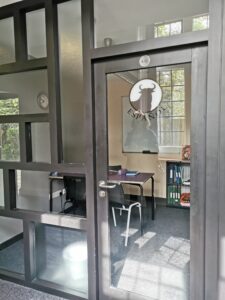
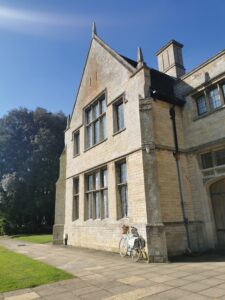
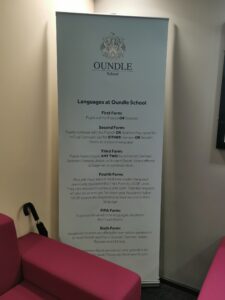
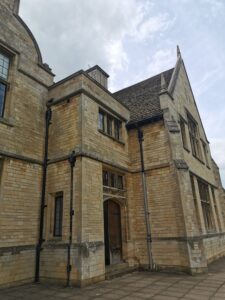
- The SCITEC
Oundle school has a strong reputation in science and engineering education. The SciTec site is a great example of this reality because it unites both physically and philosophically Mathematics, Science and Design, Engineering and technology. Indeed, the school is at the forefront of STEM teaching and learning. This pedagogical approach focuses on the previously mentioned disciplines taught through interdisciplinary, engaging and practical learning experiences. The goal is to enable students to move easily from theory to practice, from science experiments to workable technology.
The Scitec building is therefore supporting this pedagogical approach with modern equipment and classrooms. There are a lot of different class stagings depending on the topic taught : traditional classrooms, laboratory rooms, hybrid rooms with desks and benches for practical experiments… The building is very modern, made of concrete, steel and glass. There are even animals such as iguanas and ducks, which are reared at the school in a home-made incubator.
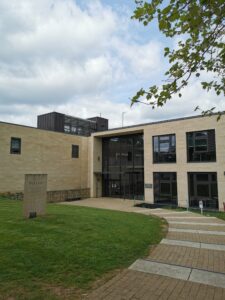
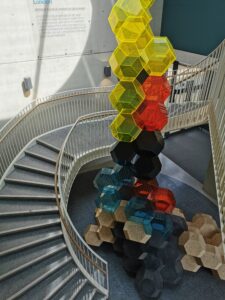
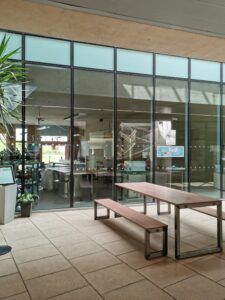
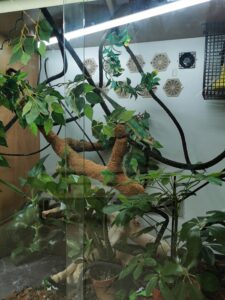
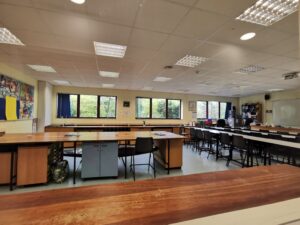
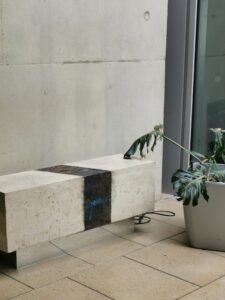
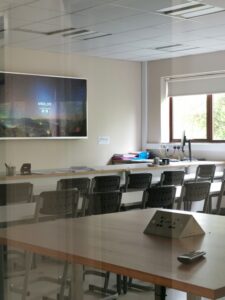
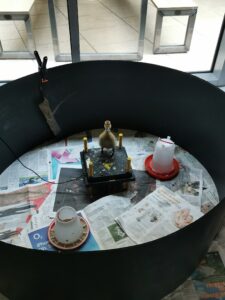
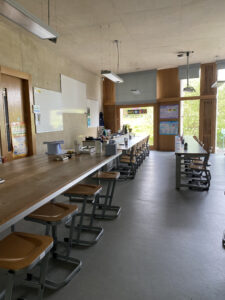
- The Patrick Engineering centre
However, if the SciTec was impressive for us, it is nothing compared to the Patrick Engineering centre. Inside a brick building hides a design and technology laboratory that looks more like a factory than a classroom. The centre is equipped with the latest technology such as 3D printers using material from rigid plastics to titanium and carbon fiber. It is very impressive! In there, students develop their creative problem-solving skills by learning in a practical way robotics, product development, manufacture, programming… It is a real haven for aspiring engineers. Some even go so far as to renovate cars. We saw lamps, perfume bottles and remote-controlled cars built by students.
This is one of the places that impressed us the most during our trip!
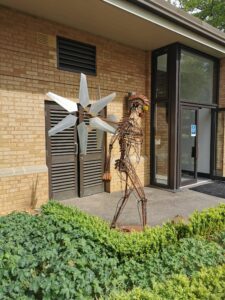
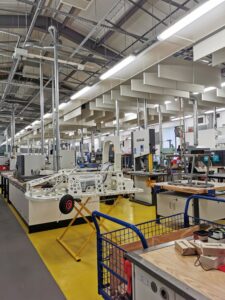
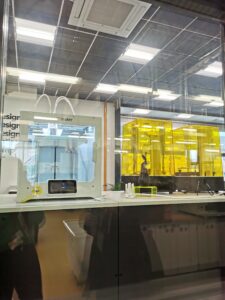
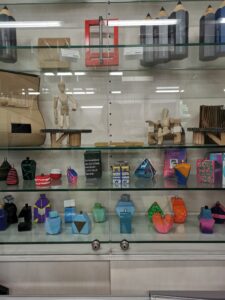
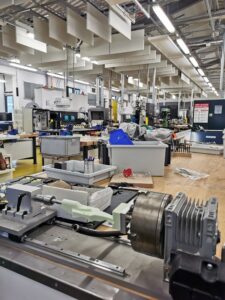
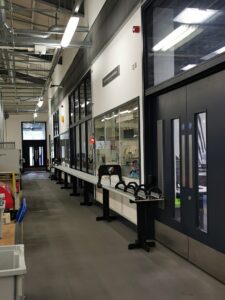
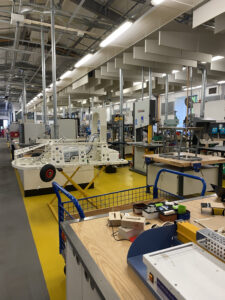
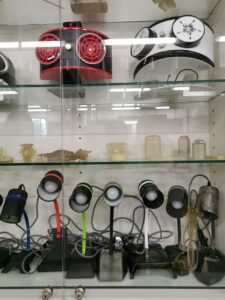
- The Gascoigne Building
Despite its performance in the sciences domain, Oundle school is also known for the quality of its artistic departments. Thus, the Gascoigne building is dedicated to music, which is rare in a school. There are plenty of individual studios with pianos for students to rehearse, teaching rooms, technology studios, a recital room…
Oundle School incites its students to learn music which conveys a sense of achievement and joy, and skills that students could use in the future regardless of their path. Students can study music for their GCSE but also the A-level. Therefore, a lot of them are taught basic theory, composition, analysis, performance, listening and appraising skills. There are lots of events where students can demonstrate their musical skills in a choir, an orchestra…
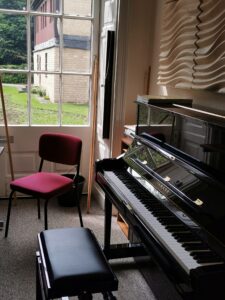
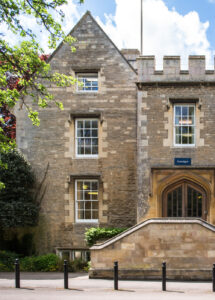
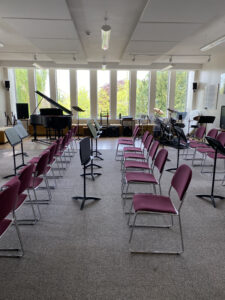
- The Stahl Theater
Oundle School also offers its students the chance to learn and practice theatre and live shows in amazing conditions. The Stahl Theater is an old church which has been transformed into a 264-seat auditorium for the school. The place is as beautiful as it is functional. There are a lot of artistic projects organized there. Pupils are encouraged to get involved in every aspect of a production depending on their preferences: acting, stage management, set production, lighting, sound, costume, make-up…
During our visit, some pupils were rehearsing a show in a gorgeous set. The types of equipment in this auditorium are impressive!
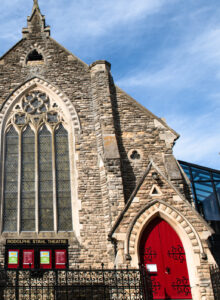
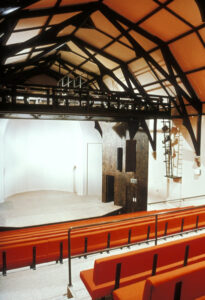
- The Boarding Houses
To conclude our visit, we must present you the boarding houses. There are 14 of them with approximately 60 students per House disseminated across town. There are Houses for boys, and for girls. Pupils are grouped by age (junior, senior…) and genre.
For example, on the picture below you can see St.Anthony House which is a boarding home for senior boys between 13 and 18 years old.
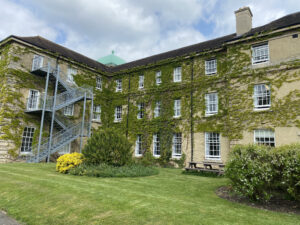
If you want to discover more about the school facilities, the school offers a virtual interactive school tour on its website! We encourage you to have a look 😉.
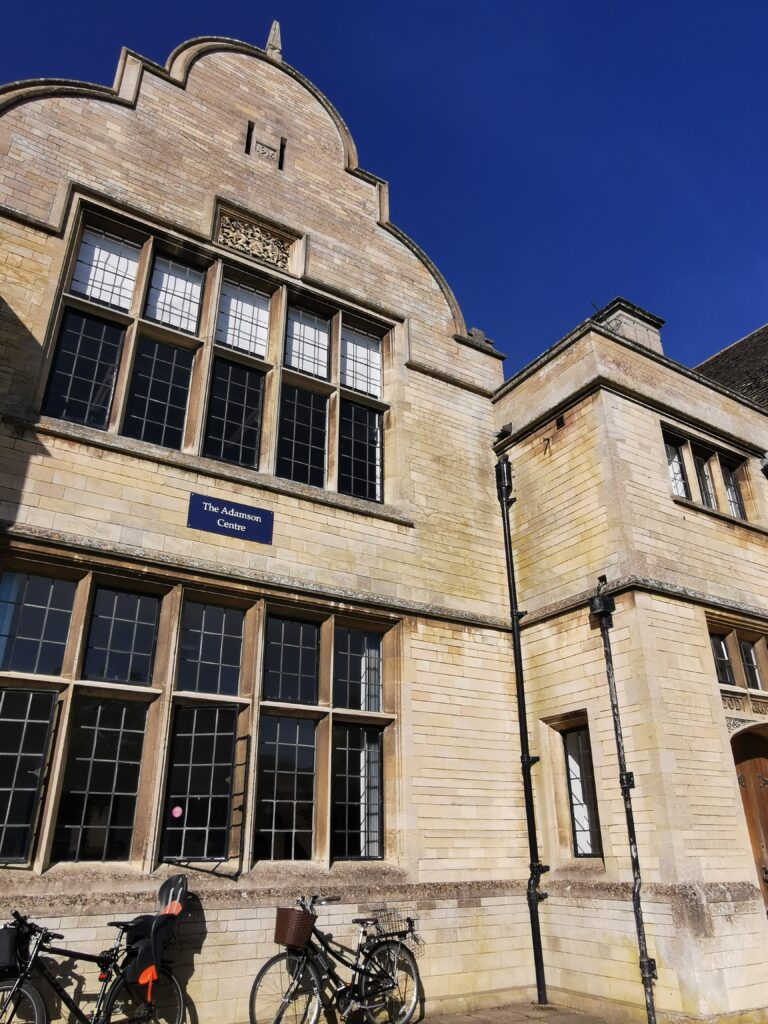
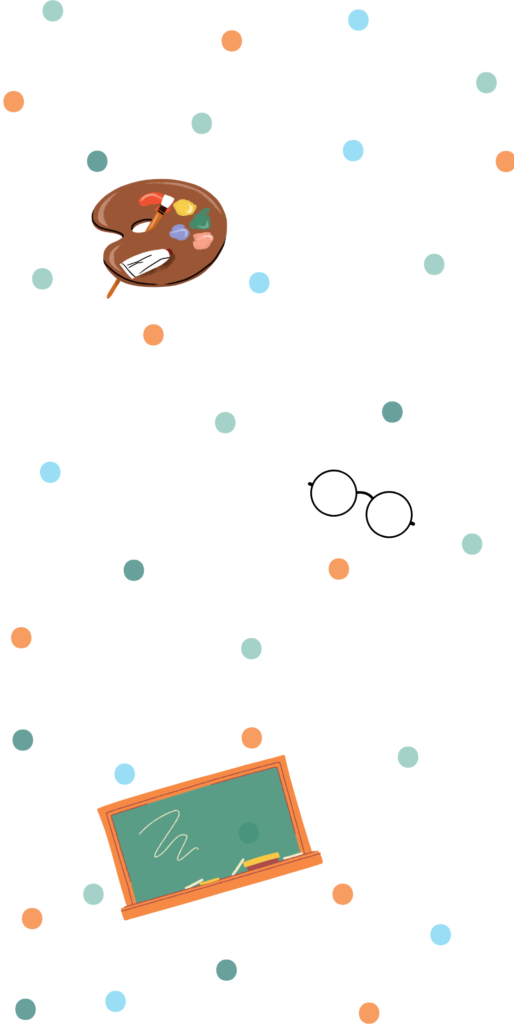
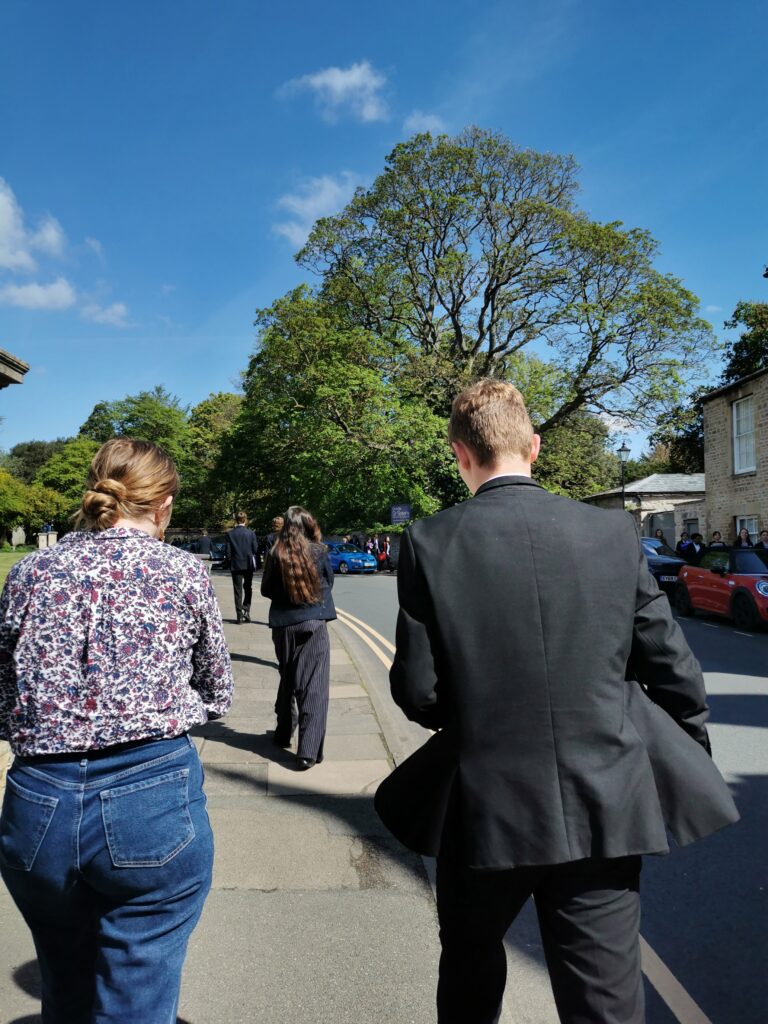

Pexels / @Olena Bohovyk
To Deliver a Distinctive and Outstanding Preparation for Life
Objective 1

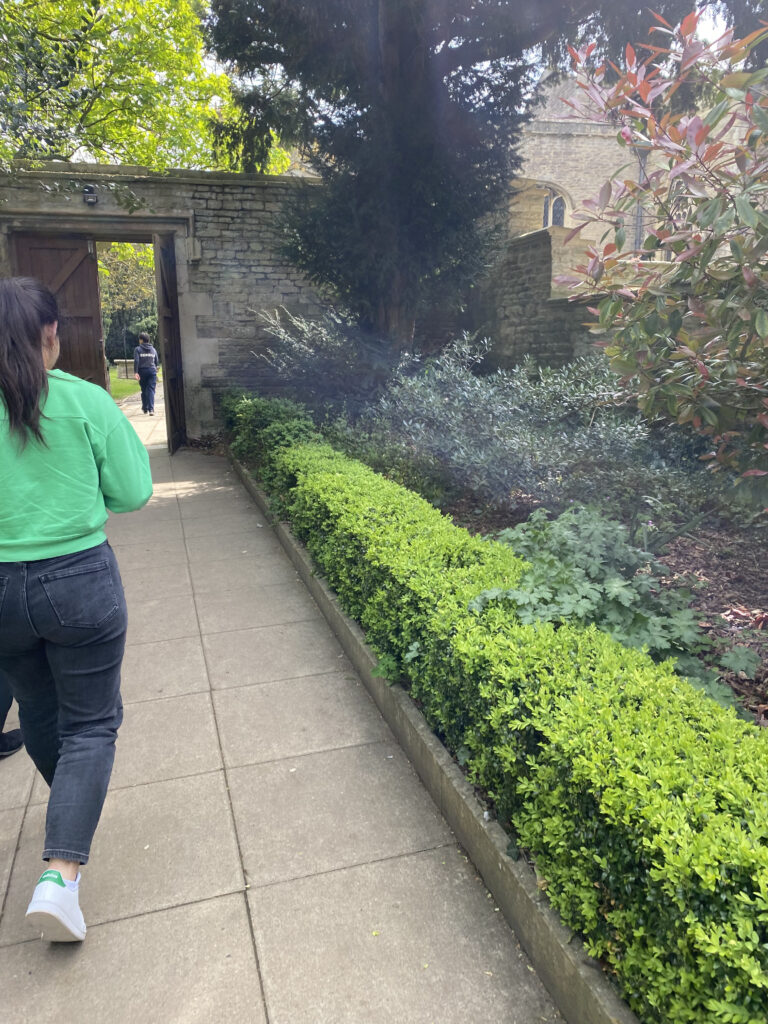
Nurturing Individual talent
Oundle School Goal


Pexels / @RFSTUDIO
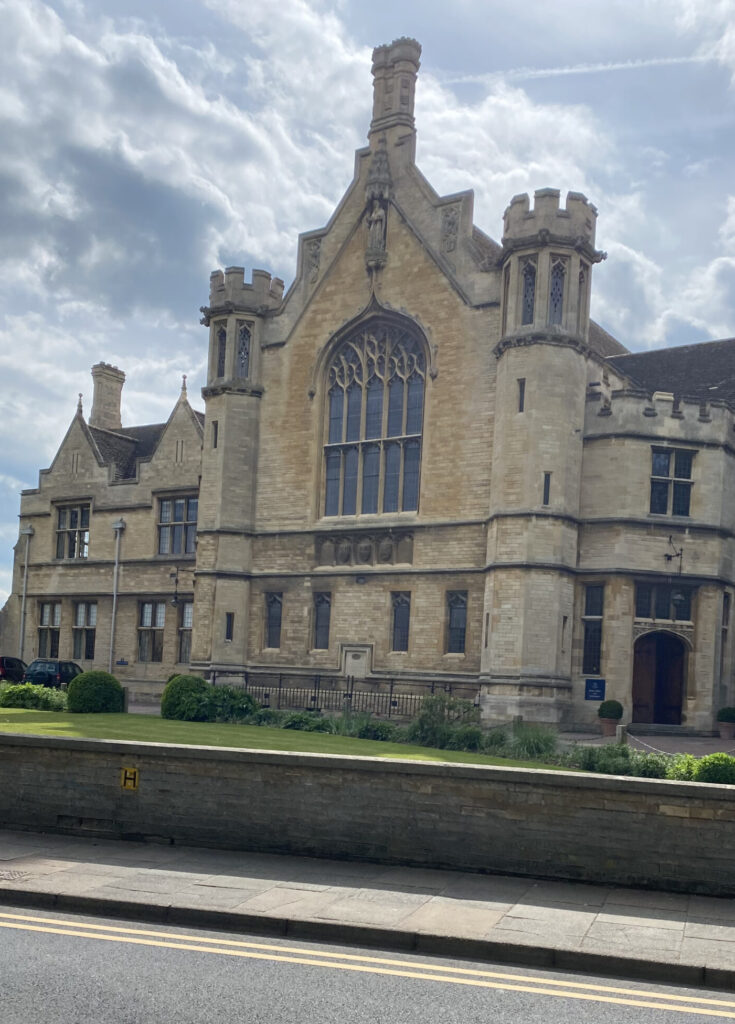
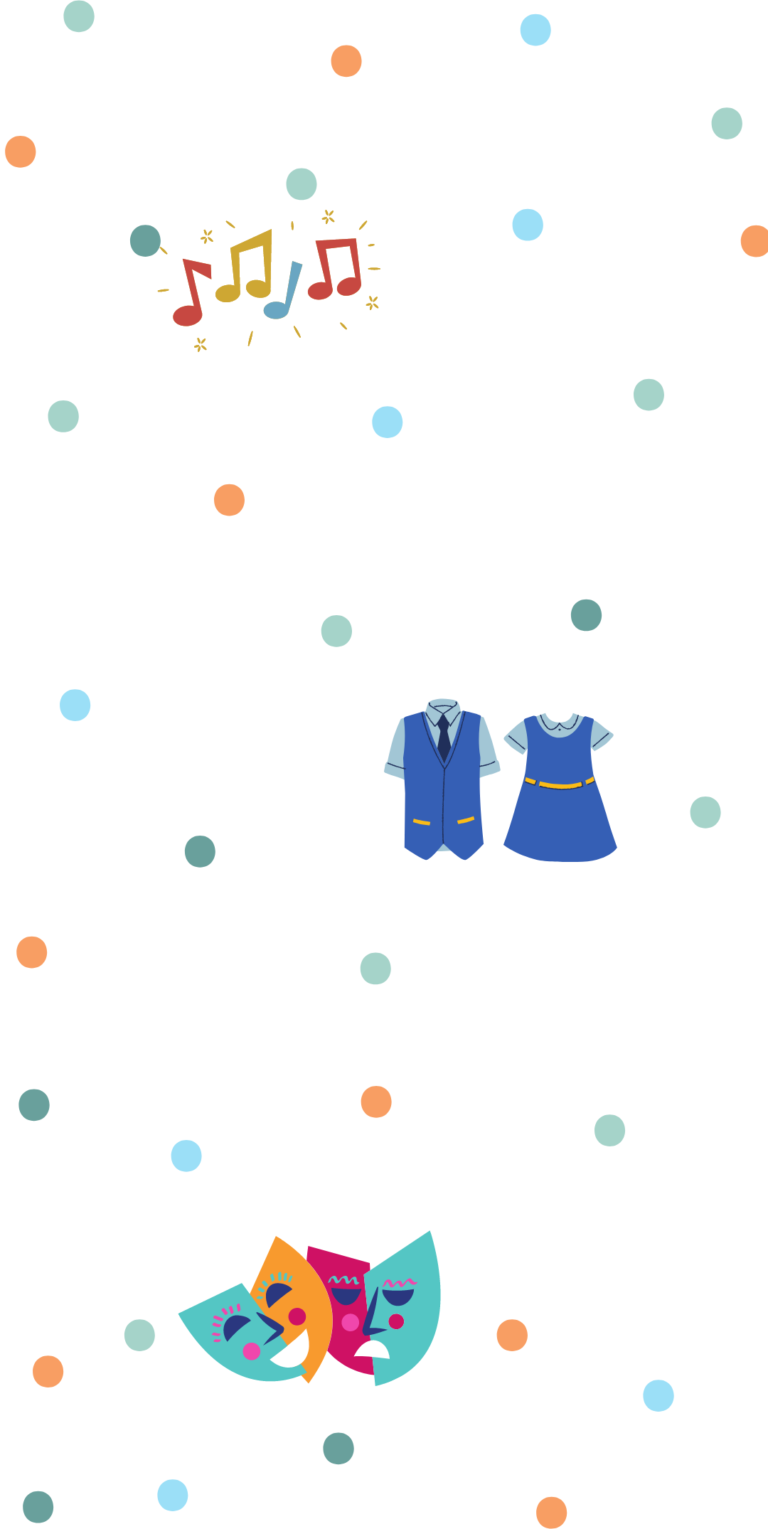

Pexels / @Ann H


Pexels / @Andrea Piacquadio
Pupils are at the heart of what we value and central to every decision made.
Oundle School Core Value

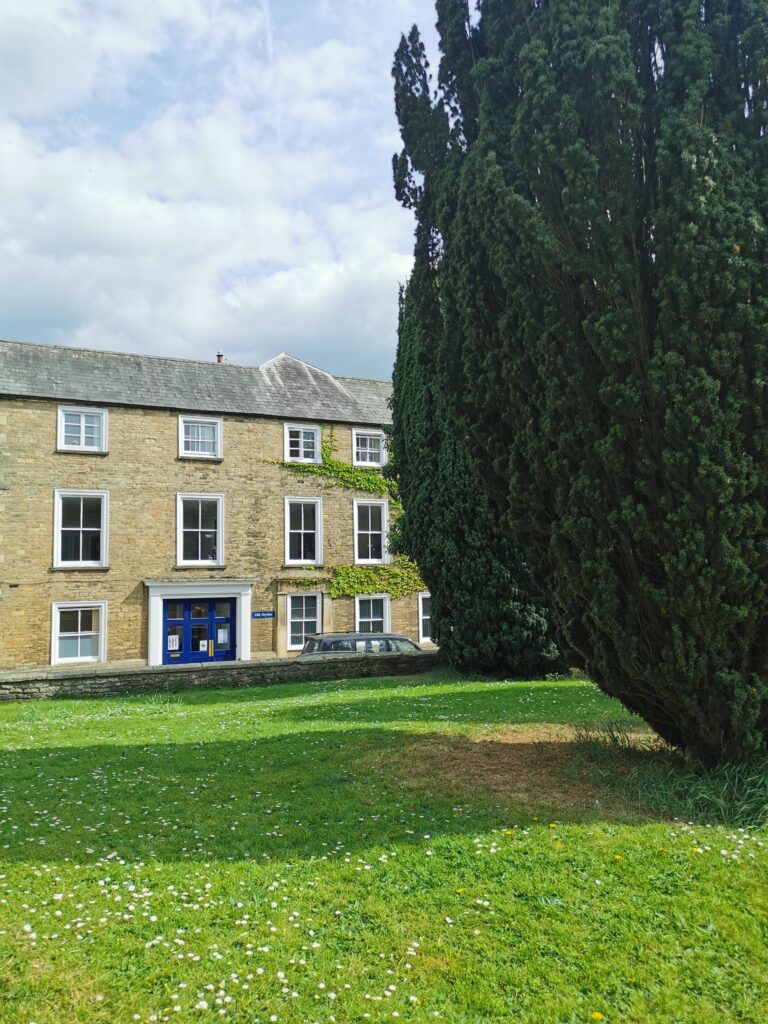


Pexels / @Lara Jameson


Pexels / @Pixabay
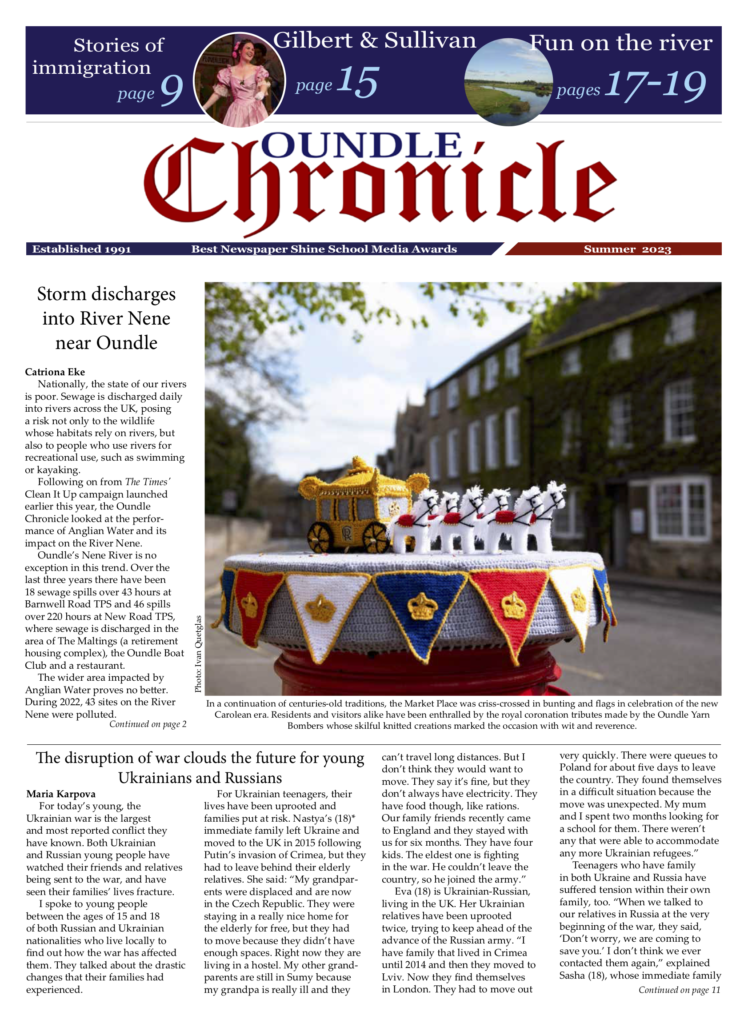

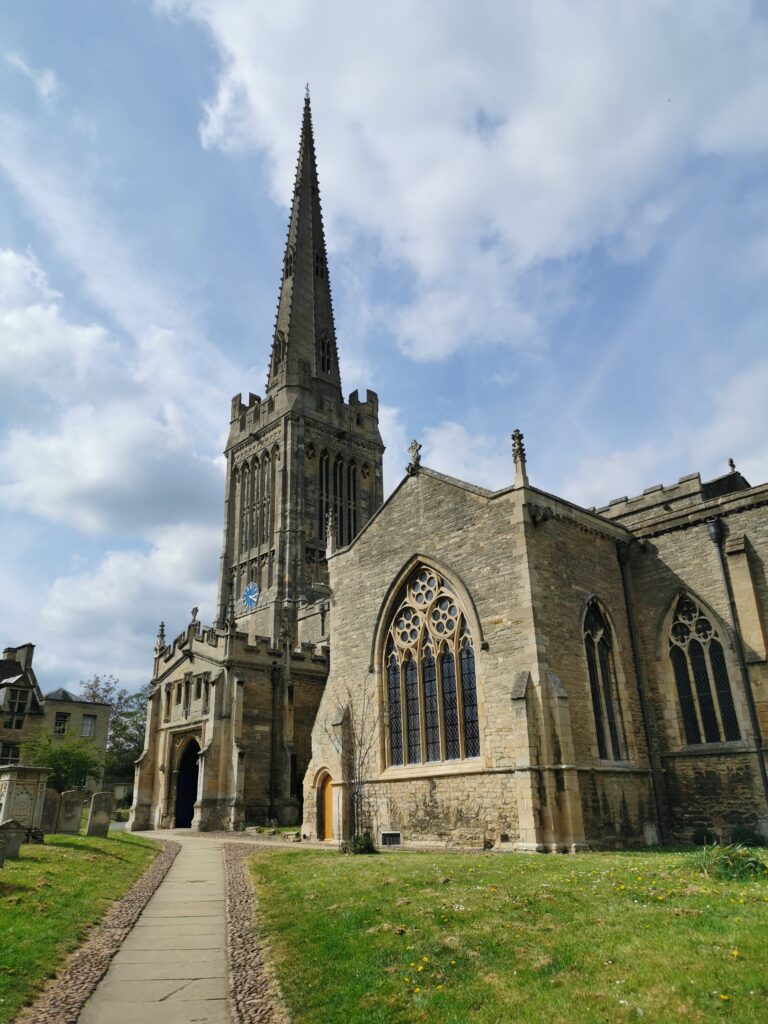
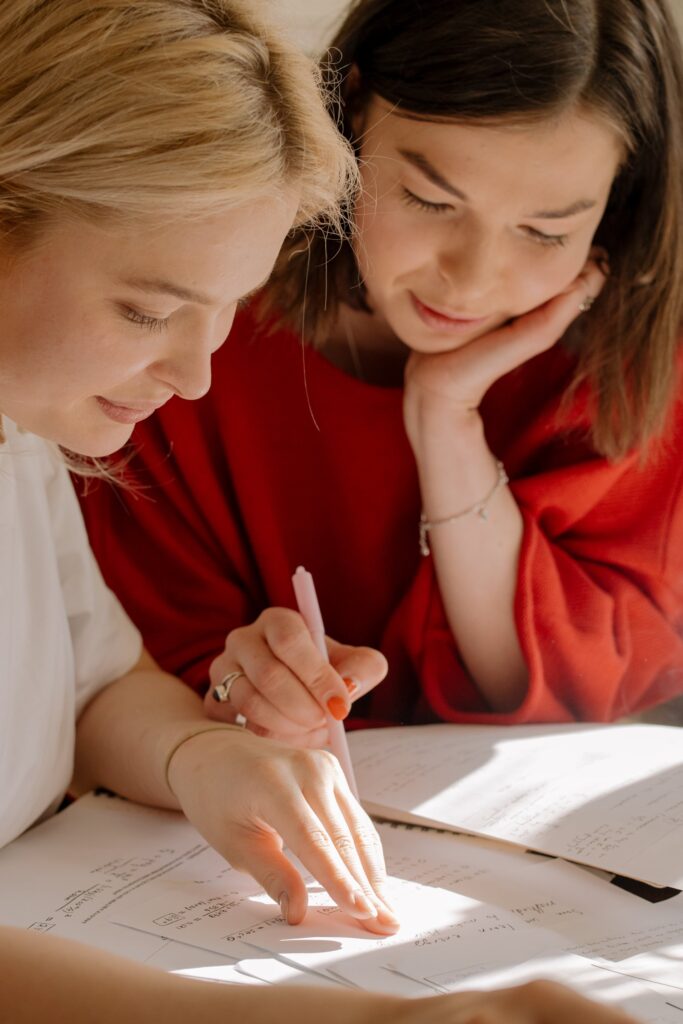
Pexels / @cottonbro studio

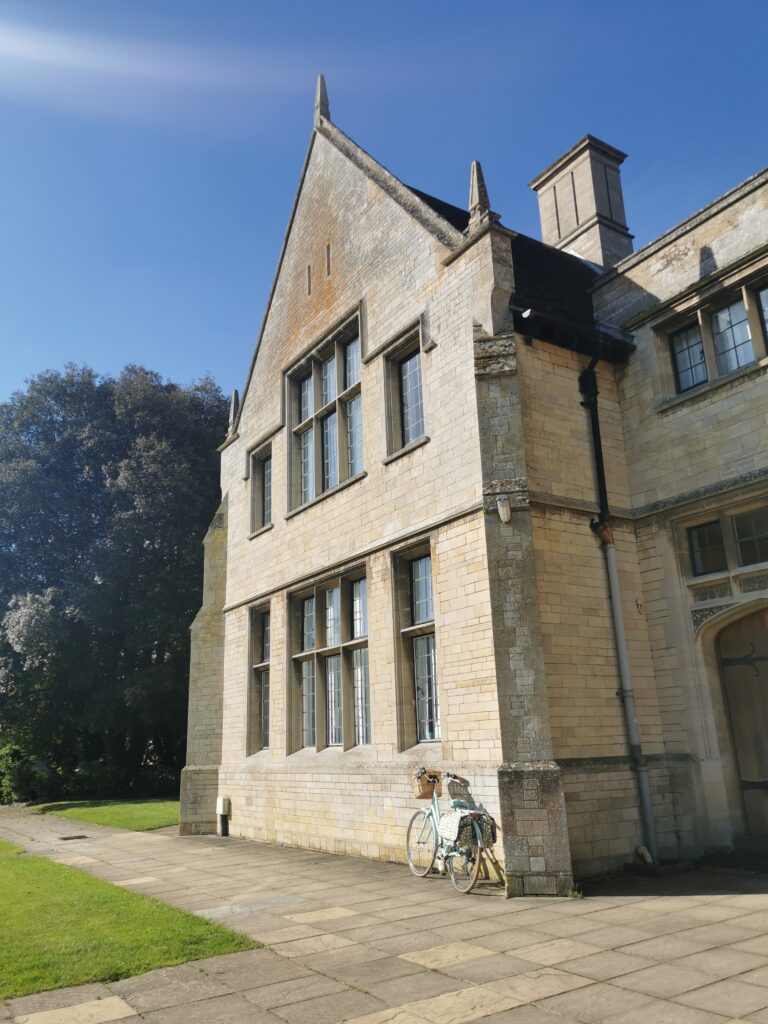
A stimulating and supportive boarding school
We were able to talk to students in Year 10 and others in their final year. They told us about their daily lives at Oundle School.
Most of the students live in the school without their parents. However, the youngests we spoke to did not seem to suffer too much from this distance, thanks to the atmosphere that reigns in the school. Indeed, they explained to us that thanks to the boarding house system, they know almost everyone. Pupils seem very close-knit thanks to the time they spend with each other. They go to class together, spend their free time together, eat together, study together… They do their homework in house with the pupils in their classes.
They can therefore have trust in their classmates, but also in their tutor. In fact, each house has a dedicated tutor to whom students can talk freely. The tutor sends a weekly report to all the parents about how their child is doing. There are also online meetings regularly organized with the parents who can be all over the world. The housemaster is frequently a teacher.
Finally, students can also count on the support provided by their teachers. Indeed, students stressed that if their relationship with their teachers is rather formal in the classroom, outside they can talk to them more freely. While some teachers are no longer reachable at the end of the school day, others are available 24/14 on Teams. In addition, on Thursdays they can ask teachers to join tutorials small groups to review certain elements of the course.
As a result, students seem to be well looked after on a personal and academic level. The house system seems to recreate a homely and family atmosphere as we can see in the following quote:
I like to think of the House as a family who will be there for you; there will always be someone to play yardy, football, tennis or chess with or watch a film or go to town with and you add to the family by being yourself, thinking of others, and being kind.
Chris Bradnam
Housemaster of St. Anthony
Although, like schoolchildren all over the world, the pupils at Oundle School would like to have more down time, they have generous amount of time to do as they please after school.
- Free time
- Supper
- Time to do homework
- bedtime
If they can use their free time as they wish, the Oundle School team wants to keep the students constantly busy, they want for them to be with people, to feel stimulated… To do so, the school offers a wide range of extra-curricular activities which are greatly valued. The way the school calls these activities is indicative of the importance it gives to them: they are called “co-curricular opportunities“. Therefore, these activities are seen by the teaching staff as complementary to what pupils learn in class. The idea behind the co-curriculum is to foster growth, responsibility, tough-mindedness and excellence.
Let’s look at some of the activities proposed in the co-curriculum
LEADERSHIP AND ADVENTURE
- Duke of edinburgh (DofE)
- Combined Cadet Force (CCF)
The Duke Of Edinburgh (DofE) is an international self-development program for young people. It aims to encourage young people to engage in a range of activities designed to develop their personal, physical and leadership skills. Oundle School is a major DofE centre and help its students organize lots of expeditions and win awards as they progress in the project they chose.
A large majority of the year 10 join the Combined Cadet Force (CCF) in the RAF, the navy or the army for a year. it is a way to develop leadership skills, teamwork and self-confidence.
SERVICE
- Community Action (CA)
- Charities and fundraising projects
Community Action (CA) is about mobilizing pupils for them to benefit both the local and the wider community. Some pupils garden for the elderly, others help Oundle food bank, others put online resources in Math and Latin for local primary schools… There are lots of actions led by the students !
Students also expressed a desire to learn more about collaborative fundraising projects. Therefore, the school decided to support this will. Students organize a football tournament, a bike challenge, a T-shirt design competition and other events to raise money for causes and fundations.
CREATIVITY AND CULTURE
- Stahl theater
- Music
- Singing
- poetry
There are a lot of artistic opportunities for the students at Oundle school.
If they like Theater, they can join different productions and participate to Playgroups, a weekly series of online talks with leading theater professionals. They can also join some musical film version.
If they are found of music, they can practice their instrument in one of the 33 studios, join on of the 46 music groups or the marching band, record their performances, learn to sing…
If they love literature, they can participate in public or filmed poetry readings in English or a foreign language.
SPORTS
- Athletics
- Badminton / tennis
- Riding
- Rugby
- Sailing
- Shooting
- swimming
Most students do sport 3 times a week. Therefore, sport is part of daily life at Oundle School. There are more than 20 individual and team sports the students can practice. The previous list contains sports in which students gained representative honours. Some pupils practice a sport they enjoy, others reach an elite level of competition. The school’s main goal is to offer a positive experience of sports, for example, by promoting equitable sporting opportunities for boys and girls.
OTHERS
- Cooking
- school newspaper
- Debating and public speaking
There are a lot of diverse activities at Oundle !
For example, pupils can join the team of Oundle’s competitive public speaking programme and learn about modulation, rhetoric and performance. Food lovers can also learn how to cook their favourite meals and develop their technique. Budding journalists can also sharpen their pens by contributing to the Oundle Chronicle, a bi-annual newspaper published and distributed throughout the town.
In short, there really is something for everyone!
Oundle School encourages its students to get involved in different project and also to not hesitate to take part in competitions. Indeed, it is seen as a good way for students to challenge themselves, and to meet other young people with the same passions. Therefore, there are a lot of sportive and artistic competitions organized inside and outside the school such as football tournaments, music contest, language competitions…
But the thing we loved the most is the fact that there are also inter-house activites and competitions organized. For example, each house has a junior and a senior house debaters to represent the house in an inter-house debating contest. The same thing is organized for sports. This is a very good way to federate pupils of the same house and to make them meet students from other houses or different ages whom they may not yet know.
Thus, Oundle School is a very caring and stimulating boarding school for the students but also for the teachers! While the students enjoy beautiful premises, benefit from the support of their teachers and fellow students, and explore a wide range of extra-curricular activities, teachers are not to be left out…
OUNDLE SCHOOL : A GREAT PLACE TO WORK
We had the chance to interview Juliette Coles, Head of Professional Development and English teacher. She is in charge of the introduction of new staff into the school and explained to us what it means to become a teacher at Oundle School.
In independent schools like Oundle school, unlike in state schools, it is not compulsory to have studied teaching to become a teacher. If someone has natural qualities, a good degree and a very good mastery of a field, he or she can become a teacher. However, at Oundle school, they are well aware that teaching is a profession that has to be learned. As a result, most of the teachers who arrive at the school are trained.
There is a SCIT (School Center Initial Training) attached to the school. It is a program for new teachers who are supervised by a tutor and a mentor who is specialized in their field. The mentors attend the new teachers’ lessons and give them feedback during weekly meetings. It is a very good way to learn teaching and to discover new pedagogical techniques. Over time, the supervisors give the teachers more and more freedom until they become totally autonomous. Juliette Coles overviews mentors and trainees to follow the improvement of each new teacher.
Juliette Coles also explained to us that their Director of Teaching and Learning, Morwenna Chapman, wants to implement strategic teaching techniques. At Oundle School, they are well aware that they are lots of new ways to learn today that can help students engage with a topic. Therefore, they encourage teachers to try new pedagogical techniques, to renew their teaching methods. During the pandemic, this evolution in teaching practices was almost imposed on the teachers. But for Juliette Coles, it is important to keep looking for new teaching techniques that are adapted to the contemporary world, even in non-crisis times.
So we can see that the teachers at Oundle School are very well supervised and trained. Juliette Coles explained to us that it is a very supportive workplace, as shown by the fact that they do not suffer from the teacher retention problem that affects the rest of the country.
In addition to this support, the teachers are also fortunate to teach in premises that are as beautiful as they are well-equipped, as we mentioned earlier. But even more than that, they have dedicated areas that we were able to visit and which are of an obvious quality. Near the canteen, the teachers have a very large, light-filled break room overlooking a beautiful garden, with tables, sofas and huge baskets of fruit… In short, an ideal place to work, chat with colleagues or relax.
All these elements explain partly the quality of the teaching team and the results of the students!
“Our School is filled with wonderfully passionate and committed teaching and support staff who each offer a unique mixture of academic, pastoral and life experience to our pupils.”
Daviona Watt
Deputy Head
Therefore, at Oundle School, students and teachers alike seem to be working in a high-quality, healthy, warm and stimulating environment that is truly enviable!
An example of lesson at Oundle school
Of all the lessons we attended, the one that left the biggest impression on us was Juliette Coles’ Year 12 English lesson. She demonstrated an impressive command of teaching methods and an innovative approach enabled her students to acquire not only knowledge about English literature, but also more general and human skills. The lesson took place as follows…
PRESENTATION AND INSTRUCTION
Juliette Coles began by presenting the subject of the lesson: poetry and prose texts. Then, she explained precisely the instructions of the exercise the students were about to do. She divided the class into two groups of 4 pupils for a teamwork. One group had to work on the prose text, the other on the poetry text. The students had to study together their text in order to present it to the other group with an oral presentation. She insisted on clarity : they will have to deliver clearly their ideas and to take on the role of teacher for the other group.
She summarized one last time the assignment and the objective to the class, created the groups, distributed the texts, gave them time to read their document and started a 5 minutes timer for the group work.
GROUP WORK
The two groups got down to work straight away, presenting their ideas, talking to each other and taking notes. There was a real feeling that all 4 students in each group were involved, probably due to the small size of the groups. Juliette Coles didn’t interfere at all and let them organise themselves as they wished. She came to present the pedagogical goals of the exercise, which we will present later.
ORAL PRESENTATIONS
At the end of the allocated time, a pupil came forward to present his or her group’s work to the rest of the class. We were really impressed by how much each student has to say about a text after only 5 minutes of preparation. The group representatives spoke about certain themes or parts of the text, while the other group took notes.
After each presentation, Juliette asked some questions to the pupil who talked in front of the class to deepen the analysis. She did it really kindly to not put the student in difficulty. Then, she quickly debriefed the presentation, stressing what the student and his/her group had done well:
“Really well done!”
“You did brilliantly!”
After that, she took some time to bounce back on what the student said and to give the class further information. She gave them vocabulary words useful for analysis, turns of phrase and philosophical considerations she illustrated by drawing factual parallels with life in general, and even sometimes with her own life using humour.
Then, the same process went again with the other group.
HOMEWORK PRESENTATION
To conclude, Juliette presented the homework they had to do on their own for next classe. She asked them to write individual essays on the text they didn’t prepared today. Thanks to the oral presentations and the explanations provided by the teacher, each students had some ideas to start his or her work, ideas that they could develop further.
Thus, this course was really interesting because it enabled students to work on various sets of skills.
Indeed, Juliette explained to us that it is essential to make the students work on both their oral and written expression. She deplored the fact that written expression is still dominant because it is often the teacher who talks the most, but she tries to get them to speak as often as possible. She explained to us that oral and written expression are complementary. Working on spoken language helps them gain confidence, learn to formulate their ideas clearly and think differently. For her, spoken language calls on logical organisation and intellectual mechanisms that are different from those used when they are writing. With the work students did during class and what they have to do at home, they work on both these expressions and their associated skills.
But this exercise is also about showing them that they can rely on their abilities and knowledge. She gave them two unfamiliar texts without meta indications about authors or publication dates. Her goal be doing so is to show her students that they will always have something to say about a text without knowing all about the context and literature theory in general. The presentations we saw were proof of this fact. She also wanted to value their autonomy regarding their approach to the text analysis and the way of presenting it to the class. Without an imposed structure, students are free to present and defend their ideas as they please. This way, they realize they are not only good at following instructions, they have a mind and a logic of their own.
Therefore, during this lesson, students learned about literature (recurring themes, stylistic devices, literary movements…) but they also acquired more general skills. indeed, they gain in confidence regarding oral expression by practising it with an exercise that they have just prepared quickly and which they do not perfectly mastered. They also learn to be the spokesperson for a group, to pay tribute to their group’s work. They could reuse these general skills in any other context, in another class or even in their daily lives. Thus, it is the duality of this exercise we loved. Juliette has two goals: helping them to develop both in their personal skills and in their academic learning.
Then, this course is the perfect illustration of the equal importance Oundle School places on both personal and academic skills that are necessary for the students to become accomplished and fulfilled adults.

Pexels / @Karolina Grabowska


Pexels / @Cottonbro studio


Pexels / @George Milton

Pexels / @Anete Lusina

Article written by
MARIE FERRAN
On the 12/26/2023
What inspired us

The Oundle School premises are really impressive. First, because of the size of the school and the number of buildings. Second, because of the charm and equipment of each building, ancient or modern. It is a beautiful place to live, making you want to learn!
There seems to be a building for every passion that students might want to explore and it is a great opportunity for them!

The array of topics students can learn is wide! It is great to see that there is no hierarchy between the topics, everything can become a major. Therefore, Oundle school provides numerous courses in Arts, Sciences, Humanities… The pedagogical team encourages students to explore new themes, to get invested in extra-curricular activities. They provide a truly holistic education, which is fundamental in a boarding system and allows students to get ready for their adults lives.

We saw that the team is truly caring for the students. Indeed, even if teachers attempt to push students towards academic, excellence. However, they do not neglect the human side of education. They are constantly encouraging students, praising them, and fueling their confidence. Teachers have to keep an attitude during the lessons, but they become more accessible once the course is over. We can feel that everything is done for the student to blossom, to evolve in a familial atmosphere that makes them feel at home.
Thanks you for everything Oundle School !
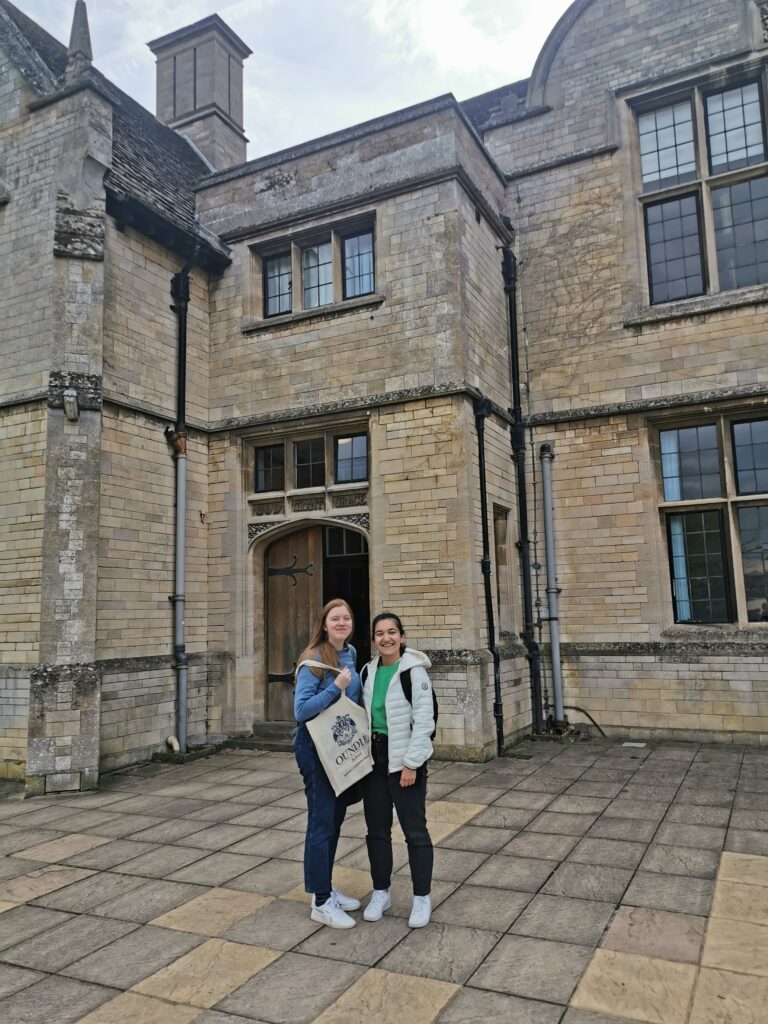
Key words
Academic Excellence
Extra-curricular activities
Boarding school
Equipments
Teacher training
England
Our latest articles

Out of the box
![]()
A Belgian educational workshop for school drop-outs that stimulates pupils' creativity to rekindle their desire to learn !
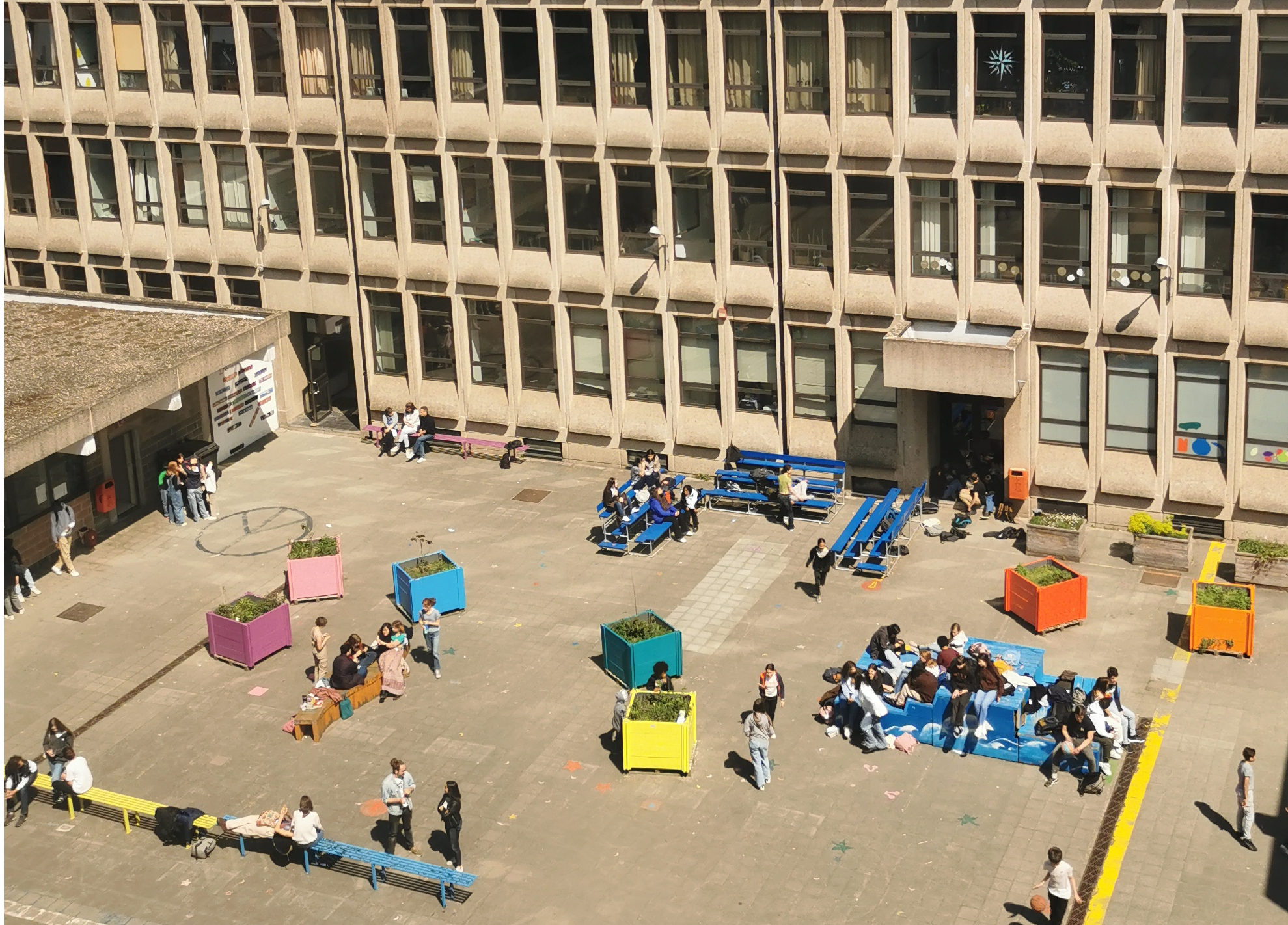
Lycée Intégral Roger Lallemand
![]()
A new Belgian communal school which reinvent school with a contemporary and emancipatory pedagogy.
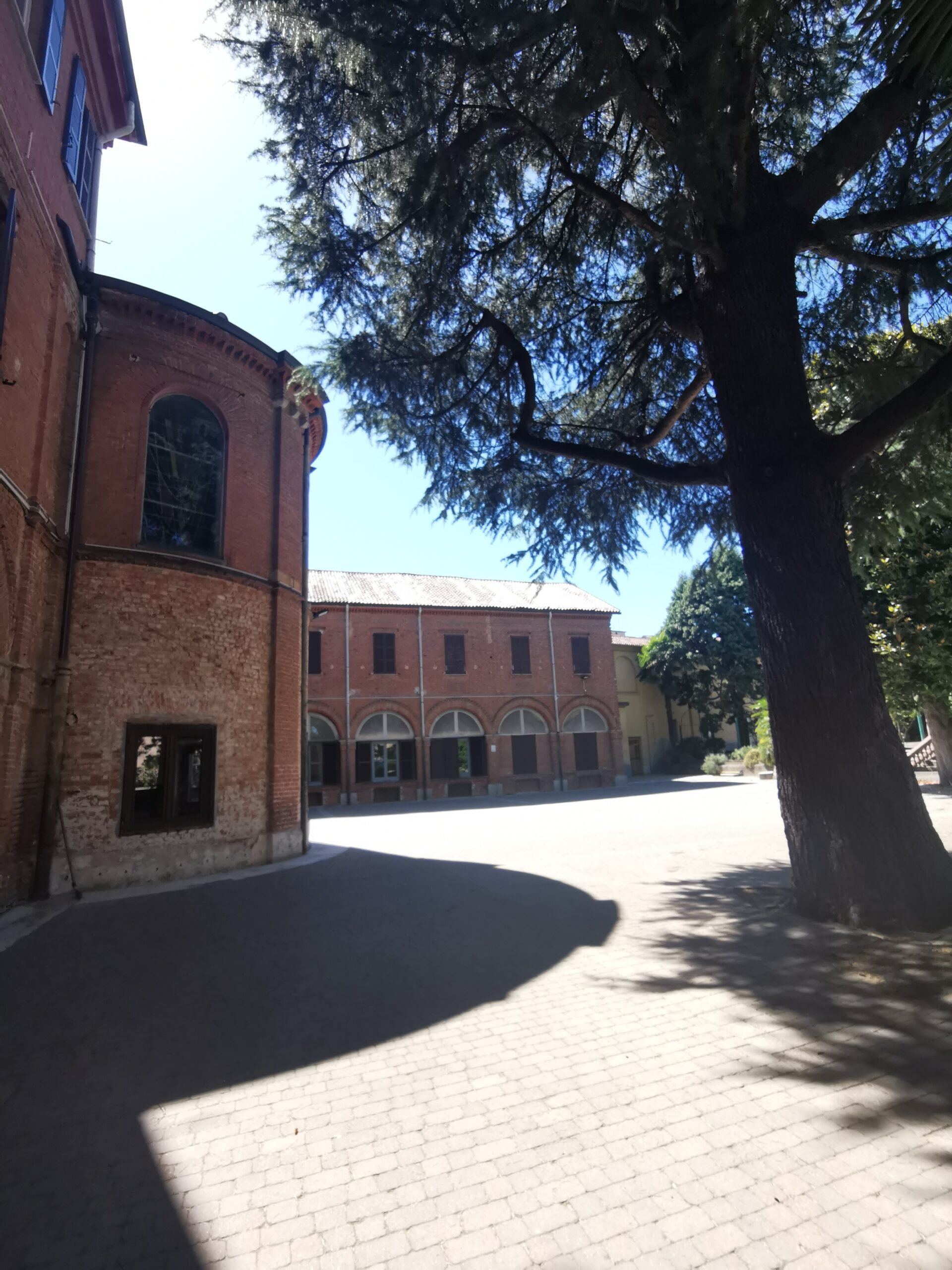
Istituto Paritario San Giuseppe
![]()
An Italian dominican school that blends elements of tradition, with the evolving needs of a continuously transforming society.

